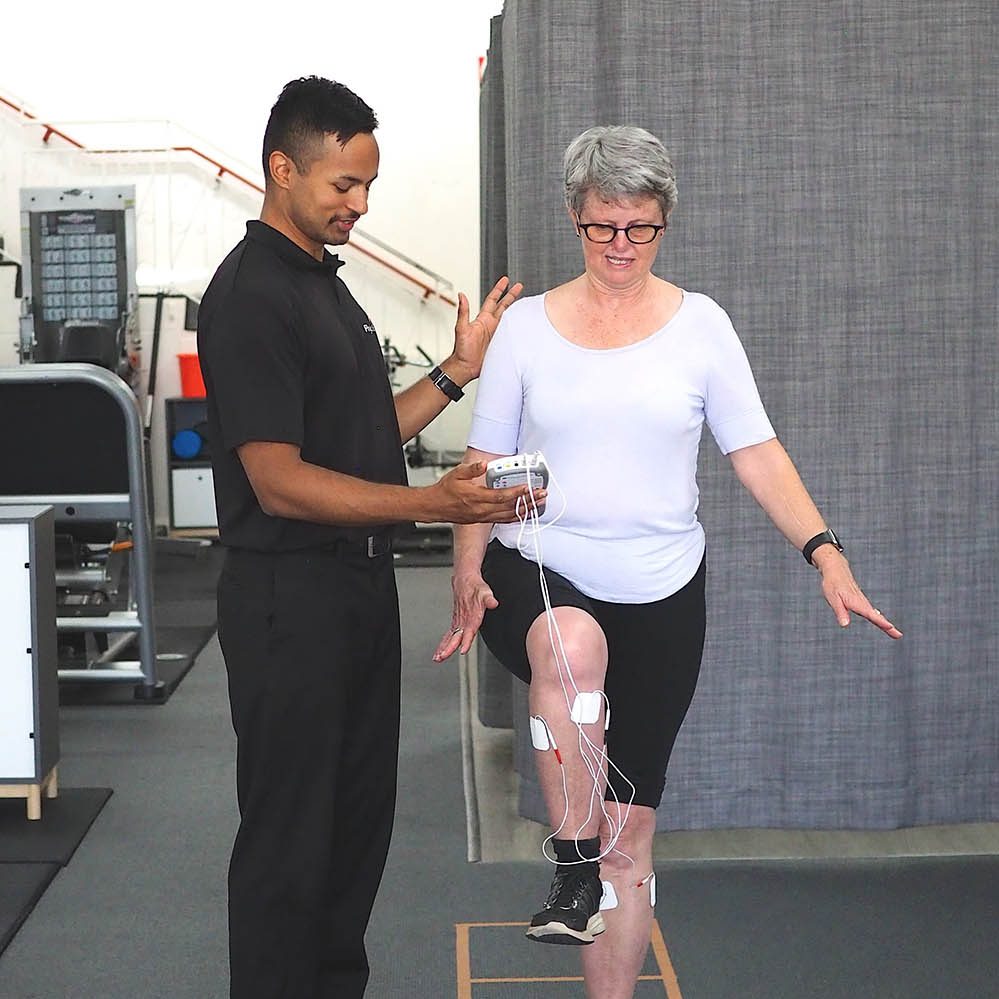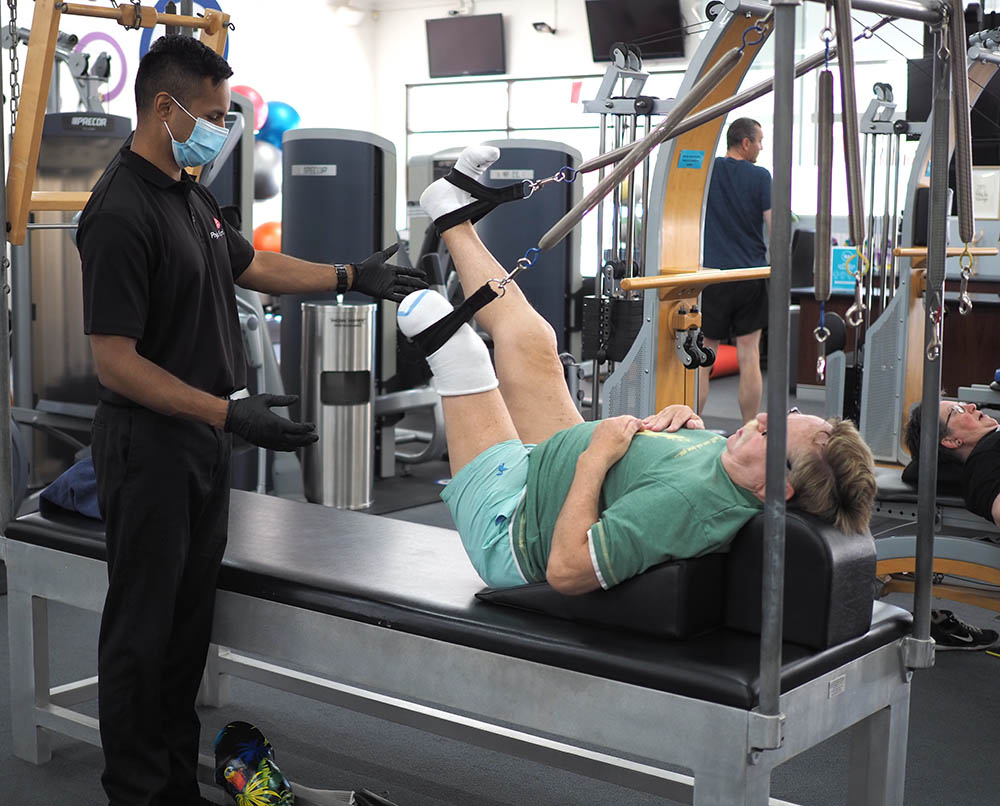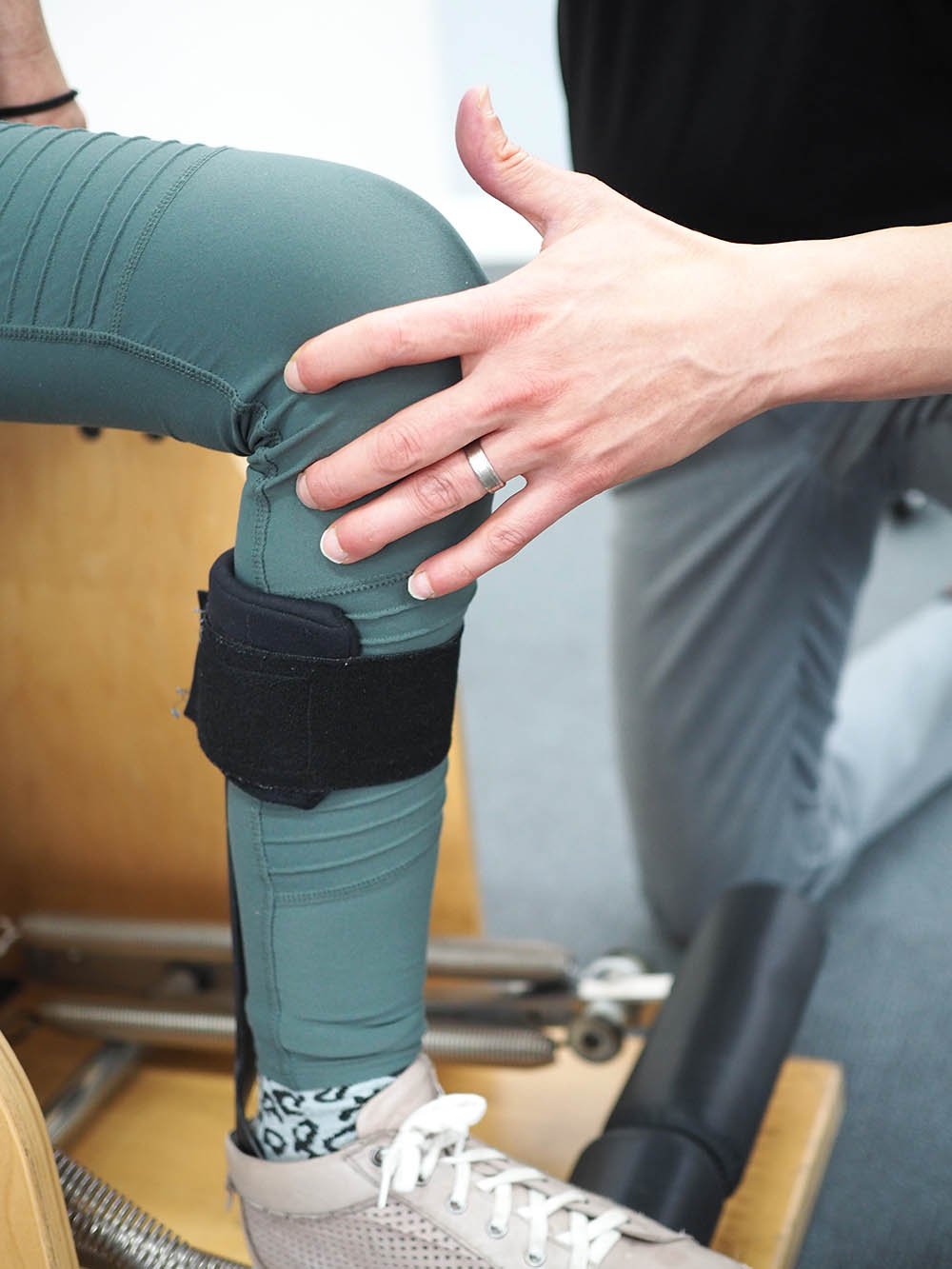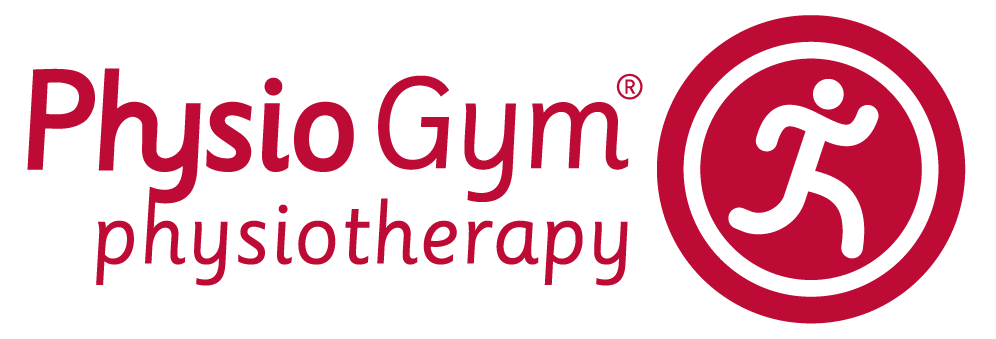
People with disabilities
We are inspired by the opportunity to assist patients with a disability on the NDIS.
Your potential to succeed in the community is enhanced through exercise, supporting increased function, endurance, mood, confidence and self-belief.
Individualized programs offer a space of inclusion, positive belief and empowerment.
The power of long-term rehabilitation is more than just exercise – it’s a journey we share with you. Our team becomes part of your story as we support you, learning about your experiences and addressing your needs and challenges.
Amputees
Mobility can be improved by developing strength and function of the amputated limb, helping it to work efficiently with your prosthesis. Targeting performance of the whole body using the prosthesis further enhances this.
Initially we use equipment that supports your body and expands your capacity for movement.
As your muscles gain strength and endurance we progress to agility exercises with a focus towards meeting your NDIS goals.
Spinal Cord Injuries
Our facility and equipment allow for easy wheel chair access while we work with you to meet your specific needs and movement requirements.
Lower body function and mobility for transfers can be supported through specific exercises to regain lower leg strength.
We can also work with you to focus on enhancing torso agility, upper body strength and endurance.
Mental Health
We understand that, like chronic pain, mental health is an “unseen” disability that can vary from day to day. Our programs meet individual needs across different conditions, ranging from depression disorder to schizophrenia.
Exercise has been shown to be effective in reducing symptoms of mental illness, and we start you on a steady program that gets your body moving and feeling confident. We can also explore the benefits of breathing and meditation exercises to help calm the mind.
Importantly, developing a regular routine with your therapist will help you stay on target and move in a positive direction with exercise for the long term.
Stroke
Brain injuries and stroke are often sudden but their legacy may be long term, with disabilities varying from mild to severe. We can work with you to find the moments of opportunity to improve your brain function, body awareness and capacity for movement.
Your therapist will support your body’s capacity to regain movement through the use of specialized rehabilitation equipment. Biofeedback is also used to assist in re-establishing muscle activity and trigger muscle co-ordination.
Even with the most challenging situations, there is often capacity to improve, with success delivered through perseverance and by creating the opportunity for change.
Multiple Sclerosis (MS)
MS symptoms are unique to each person’s condition. Our programs can support you to enhance your mobility, function and well-being.
We assist with managing balance issues, reduced muscle tone, pain with breathing and loss of movement. Our exercise equipment supports your body so that your physiotherapist can challenge your movement patterns and body awareness.
Parkinson’s Disease
Parkinson’s Disease has considerable impacts upon posture, mobility, co-ordination and confidence. With the evolving stooped posture, remedial intervention may also require hands on care for pain relief.
Exercises are specifically targeted at teaching you how to keep moving and to “kick start” your body when it gets stuck or regresses to shuffling movements, conditioning your muscles and maintaining extension in the spine.
Attending our small group exercise classes also allows your physiotherapist to help set up the exercise equipment and keep you moving happily, feeling safe and supported.


Cerebral Palsy (CP)
Our programs are focused on enhancing agility, offering pain relief and remedial exercises to minimise the impact of constricted joints.
Hands on care is provided to relieve the tension created by muscles in contracture or to help reduce pain due to postural asymmetry.
We work with you to challenge your agility and promote the opportunity for independent exercise. Exercises can stretch tight muscles, enhance the motor patterns and improve the efficiency of your movements.
Obtaining and enjoying increased freedom of movement is a key objective, and we will work with you in classes, or individually to achieve this.
Down Syndrome
With a focused approached towards obtaining your NDIS goals we also aim to enhance mobility, fitness, and a healthy lifestyle.
We can help work towards independence by assisting in training for home, school or work specific activities.
Vision Impaired
There are many reasons why people develop impaired vision, creating different goals and capacity to exercise independently.
Programs are targeted towards your goals, such as weight loss for diabetes prevention or exercises to prepare you for sports such as climbing or skiing.
As therapists, we work with you and your care support worker to ensure you are familiar with the exercise equipment and space. Seeing eye dogs are welcome.
Kids on the NDIS
We aim to make kids’ sessions playful and fun, to get them moving and focused to achieve their best.
Our programs are specific for issues such as:
- Motor Control Issues
- ADHD and ADD
- Autism
- General learning disabilities
- Congenital disorders
For young kids, individual 30-minute sessions are best. The therapist may integrate multisensory exercises or add elements of cognitive challenges.
Teens on NDIS (11-16)
We focus on establishing long-term exercise habits that can be maintained, building confidence and promoting regular activity.
Sometimes, exercises may need to be slowed down to enhance motor skills and reduce often “clumsy” movement patterns.
Educational training may include teaching how to identify and cope with motor restrictions rather than developing anxious, avoidant or frustrated feelings.
